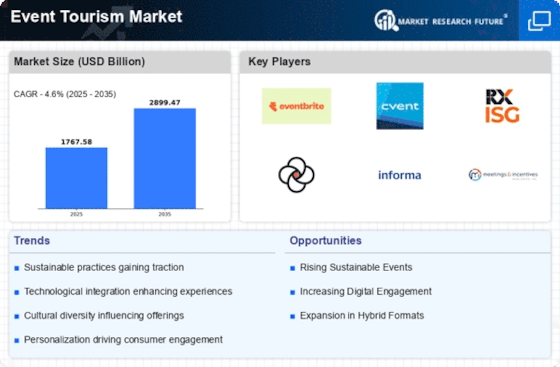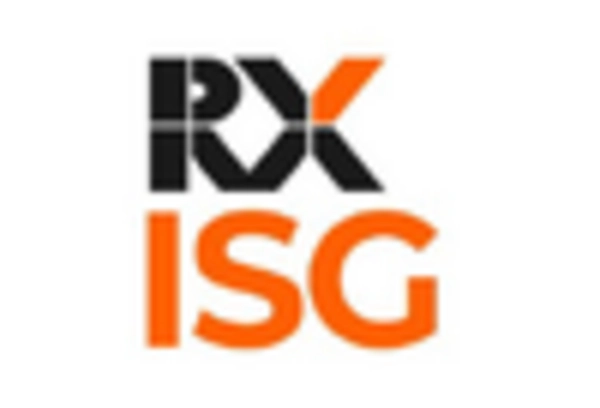Market Share
Event Tourism Market Share Analysis
In the dynamic landscape of the event tourism market, companies employ various market share positioning strategies to establish themselves as leaders and cater to the growing demand for unique and memorable travel experiences. These strategies are crucial for businesses seeking to resonate with consumers who prioritize events and festivals as key elements of their travel itineraries.
Event customization and differentiation are fundamental strategies in the event tourism market. Companies aim to set themselves apart by offering tailor-made travel packages that revolve around specific events, festivals, or cultural happenings. By curating unique experiences and providing access to exclusive events, these companies attract consumers looking for more than traditional sightseeing. Personalized itineraries, special access to venues, and guided tours during festivals contribute to a distinctive value proposition and help capture the attention of travelers seeking immersive and culturally enriching experiences.
Pricing strategies play a significant role in market share positioning within the event tourism sector. Some companies adopt a premium pricing strategy, positioning their packages as high-quality, all-inclusive experiences that offer added value and convenience. This approach targets travelers who are willing to invest in unique and hassle-free event experiences. Conversely, other companies may focus on competitive pricing to appeal to a broader audience, making event tourism accessible to different budget ranges. Striking the right balance between the perceived value of the experience and affordability is essential to influence purchasing decisions and gain market share.
Distribution channels and partnerships are key considerations for companies seeking market share in the event tourism industry. Collaborations with event organizers, local tourism boards, and travel agencies enhance visibility and credibility. Companies may also establish exclusive partnerships with hotels, transportation providers, and entertainment venues to offer comprehensive event packages. Utilizing both online and offline distribution channels, including travel websites, social media platforms, and travel agencies, contributes to a wider market reach and increased market share.
Innovative marketing campaigns are integral to building market share in the competitive event tourism market. Companies leverage various marketing channels, including social media, influencer collaborations, and content marketing, to showcase the unique experiences they offer. Highlighting the cultural richness, entertainment value, and social aspects of the events in their packages resonates with consumers, fostering brand loyalty and influencing purchasing decisions. Effective storytelling and engaging visuals play a crucial role in conveying the essence of event tourism experiences to potential travelers.
Strategic partnerships and collaborations are increasingly prevalent strategies in the event tourism market. Companies may collaborate with local businesses, cultural organizations, or event sponsors to enhance the overall experience for travelers. These partnerships not only add credibility to event tourism packages but also provide opportunities for exclusive offerings, unique access, and enhanced services, ultimately contributing to increased market share.
Adaptability to changing event trends and consumer preferences is crucial in the dynamic event tourism market. As travelers seek diverse and niche experiences, companies that introduce innovative event packages, such as themed cruises, adventure festivals, or wellness retreats, can capture the interest of a broad spectrum of consumers. Staying attuned to emerging trends, destination popularity, and the evolving preferences of the target market allows companies to position themselves as leaders in addressing the changing needs of event tourists.


















Leave a Comment